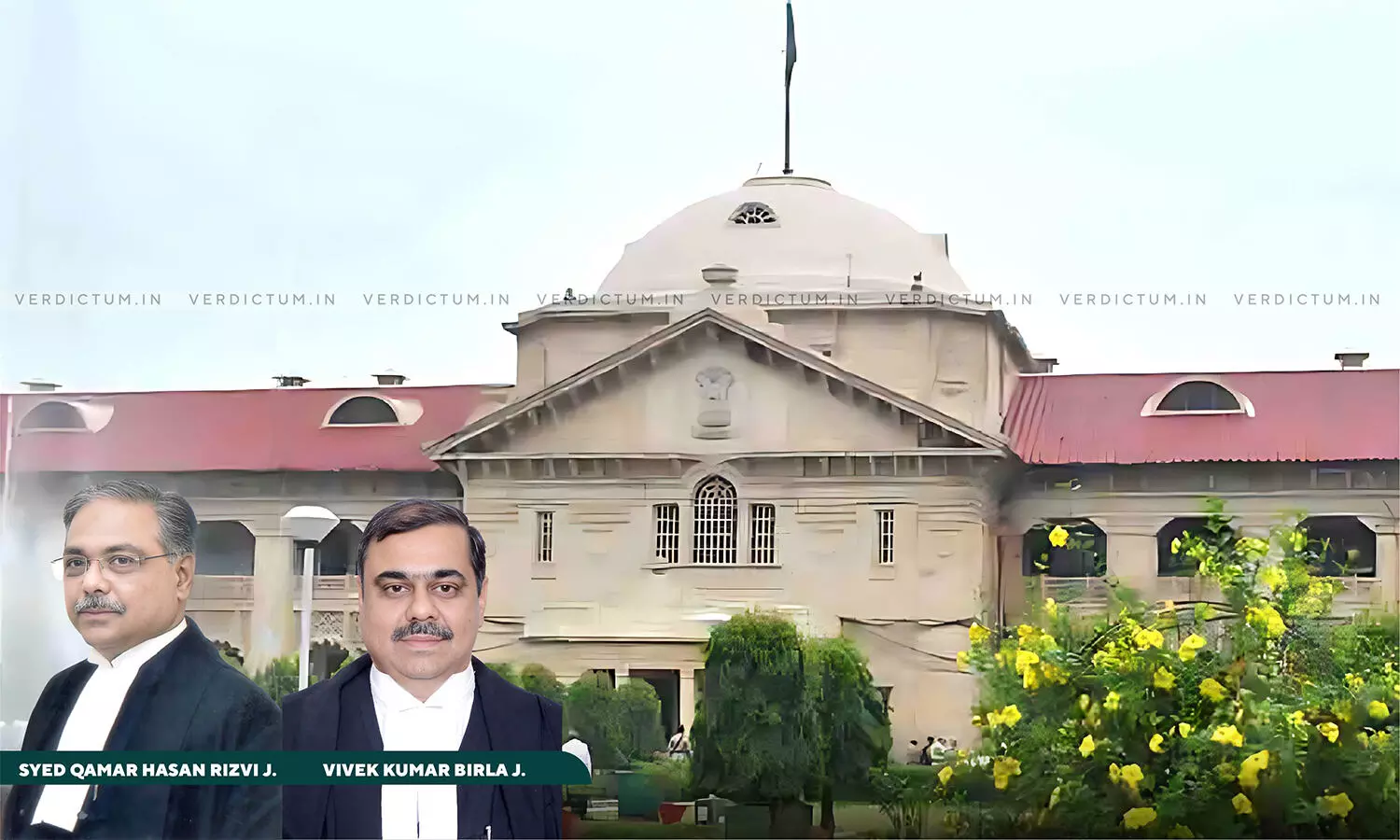
Family Courts Are Competent To Endorse Extra-Judicial Divorces Like Mubara’at: Allahabad High Court
 |
|The Allahabad High Court decreed a suit for declaration of the matrimonial status of the parties as divorced while observing that the Family Courts Act is duly competent to endorse an extra-judicial divorce such as mubara’at if both parties are major, sane and acting on their free will.
The Court set aside the Family Court's finding for being unsustainable in the eyes of law. The Family Court had held that the suit for declaration of the matrimonial status as divorced of the parties was barred by limitation as it was filed 20 years after the dissolution of their marriage, deeming it unsustainable in law.
A Division Bench of Justice Vivek Kumar Birla and Justice Syed Qamar Hasan Rizvi observed, "Therefore, in the case of mubara’at, the Family Court is competent to declare ‘divorce’, on being satisfied that both the parties, so agreeing to dissolve their marital-tie by mutual consent are major and sane are acting by their own free will. The declaration of the matrimonial status of the parties by the Family Court as contemplated under Section 7 of the Family Courts Act, 1984, is a judicial endorsement of even the extra-judicial divorce."
Advocate Bhriguram Ji Pandey appeared for the appellant, while Advocate Nilesh Kumar Dubey represented the respondent.
An appeal was made under Section 19 of the Family Court Act 1984 (the Act) to set aside the impugned judgment and order of the Family Court, whereby the ‘Suit for declaration of the matrimonial status’ of the parties was dismissed. The appeal prayed before the High Court in the exercise of its appellate jurisdiction to allow the said Suit by declaring the matrimonial status of the parties as ‘divorced’ by way of mubara’at, as recognised under the Muslim Personal Law.
The marriage between the parties was solemnized under the Hanafi school of Muslim law. However, the parties separated and mutually agreed upon divorce by mubara’at. This mutual agreement to end the marriage was documented in a notarised document titled “Talaqnama Tehreer.”
The parties jointly filed a suit before the Family Court seeking declaration of their matrimonial status. However, the Family Court dismissed the suit on the grounds of default of non-filing of the Talaqnama in-original and due to a delay of 20 years in filing the suit.
The High Court stated that The Muslim Personal Law (Shariat) Application Act, 1937 referred to this form of divorce where the parties to a Muslim marriage, may by their joint initiative and mutual consent decide to put an end to the marital tie, either unconditionally or subject to conditions mutually agreed upon.
The Bench explained, “The parties to the suit cannot be said to have transgressed the boundaries of reasonable time in approaching the learned Family Court having jurisdiction by jointly filing the suit for declaration as to their matrimonial status, for the obvious reason that the parties by way of mubara’at put an end to their marital-tie by mutually agreeing on their own free will, all the more the factum of divorce in the instant case is not in dispute giving rise to the cause of action being of recurring nature. Thus, the prayer sought for by the parties by jointly filing the Suit for declaration of their matrimonial status as divorced ought to have been granted by the learned Family Court.”
The Court observed that the parties did not “transgress” the boundaries of reasonable time in approaching the Family Court for declaration of their matrimonial status, for the obvious reason that the parties by way of mubara’at put an end to their marital-tie by mutually agreeing on their own free will, since the factum of divorce was not in dispute.
“In view of the deliberations made herein above it is apparent that in view of the express restriction as contemplated under the said Section 29(3) no provision of The Limitation Act, 1963 shall come in the way to put any bar in respect of the suit or proceeding for declaration of matrimonial status as provided under Section 7 of the Family Courts Act, 1984,” the Bench observed.
“Thus, the prayer sought for by the parties by jointly filing the Suit for declaration of their matrimonial status as divorced ought to have been granted by the learned Family Court,” the Court held.
Consequently, the Court held, “The impugned judgment and order…passed by the Additional Principal Judge, Family Court…are hereby set-aside. The Suit for declaration of the matrimonial status is decreed. Accordingly, the matrimonial status of the parties is hereby declared as divorced.”
Accordingly, the High Court allowed the appeal.
Cause Title: H v. M (Neutral Citation: 2024:AHC:149103-DB)
Appearance:
Appellant: Advocates Bhriguram Ji Pandey and Shashi Shekhar Maurya
Respondent: Advocate Nilesh Kumar Dubey